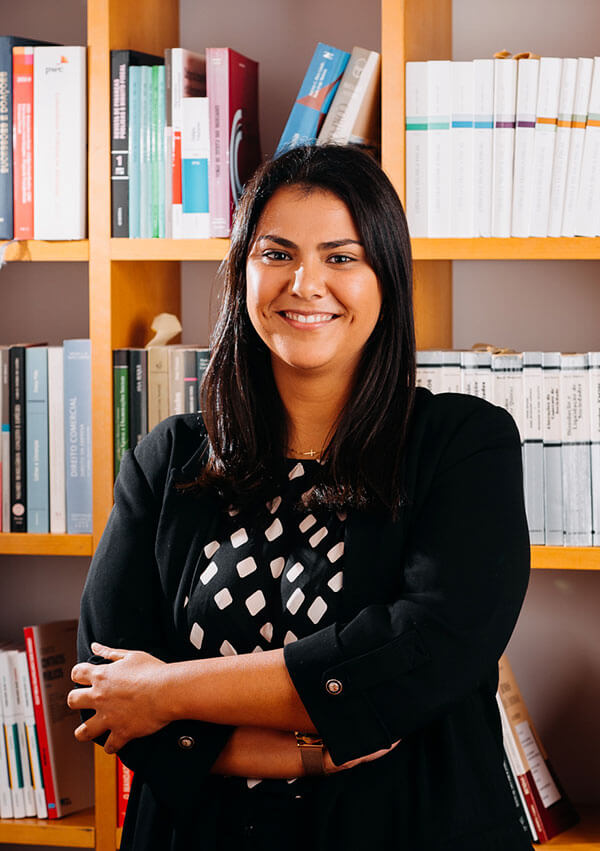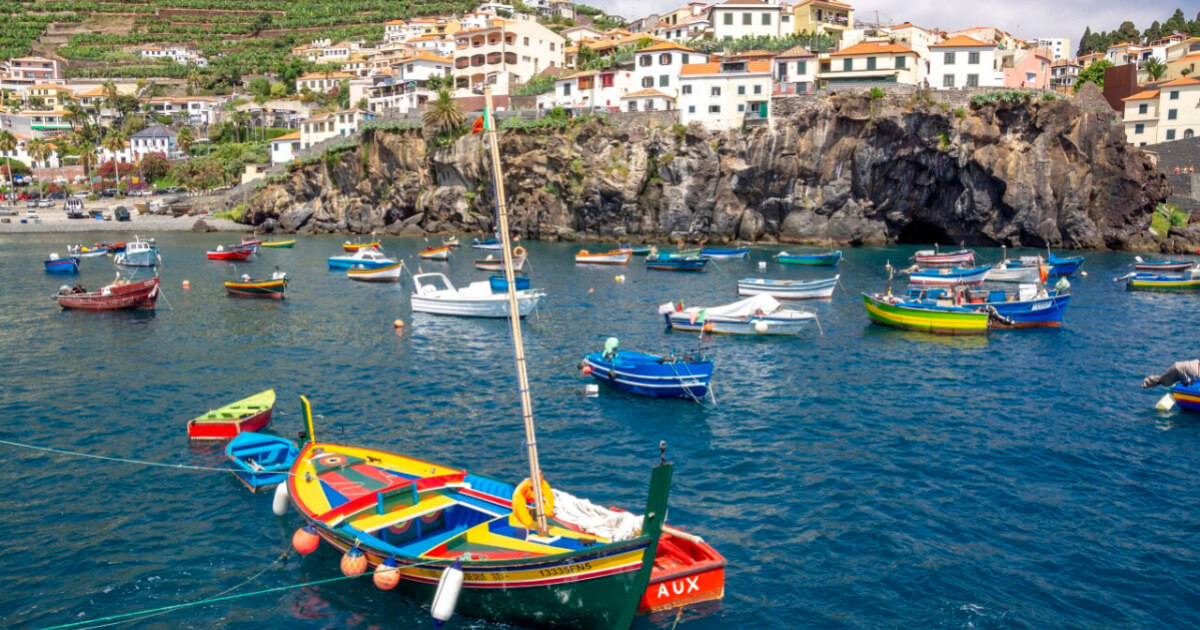How to move to Madeira? If you are considering relocation to one of the world’s safest countries and live on the serene island of Madeira, there are steps that you cannot miss out on. From immigration to taxation, healthcare, children’s school, etc.
Our team of accountants, economists and lawyers has prepared the ultimate guide below to help you understand what needs to be done and how we can assist you.
Visas and Work Permits
As a foreign citizen, you need to obtain a Portuguese visa and work permit (if required).
Portuguese visa applications always take place at the Portuguese embassy, diplomatic mission, or consular post in your current country of residency. Keep in mind that these are not well-organized procedures. When in doubt about a required document, check out the official Portuguese Visa website, email the embassy or consulate office ahead of time or contact a Portuguese immigration lawyer.
It is essential to mention that Portugal offers a residency by investment scheme and passive income residency permit scheme.
If you are an EU-Citizen, a Norwegian, a Swiss, an Icelander or a Liechtensteiner, you are in luck because you can enter Portugal without a visa and a work permit; however, you will have to register after three months with the City/Town Hall with jurisdiction over your residential address.
Get a Portuguese Taxpayer Identification Number
The tax identification number (NIF) is used by the Portuguese Tax Authority to identify an individual. It consists of a nine-digit number that can be assigned to anyone, regardless of whether they live in the country. The NIF is required for anyone wishing to live, study, work or invest in Portugal, regardless of their tax residency status.
Until you effectively relocate to Portuguese territory and obtain a residency permit, you can only apply for a NIF as a non-resident (i.e. indicating your foreign home address to the Portuguese Tax and Customs Authority). Should you apply for NIF as a non-resident and reside outside the European Union, Iceland, Norway or Liechtenstein (EEA), you must appoint a tax representative.
Tax Representative
A tax representative is a natural or legal person who is a resident of Portugal for tax reasons and agrees to function as a liaison between the non-resident taxpayer and the Portuguese Tax and Customs Authority. If the non-resident taxpayer conducts VAT-exempt business in Portugal, the fiscal representative must also be a VAT-exempt taxpayer in Portugal.
The fiscal representative must comply with the following:
- Report on his tax liabilities to his represented party
- Maintain communication with the represented taxpayer of the legal dates for meeting its tax liabilities.
- Receipt of fees and taxes payable from the represented party and submission to the Portuguese Tax and Customs Authority
- Assure compliance with all of its represented taxpayer’s tax obligations in Portuguese territory
- Intervene on behalf of the represented taxpayer as necessary, ensuring the latter’s tax rights
Should you decide to become a tax representative for a friend or family member, in order to assist with their relocation to Madeira, be sure to talk with a lawyer or a board-certified accountant to better understand the implications of said appointment. As implied by the responsibilities mentioned above, a tax representative must be a highly qualified and proficient entity in Portuguese tax law.
Failure to comply with Portuguese tax duties leads to severe fines or criminal liability that can easily be avoided.
Opening a Bank Account and accessing the Multibanco network
Establishing a bank account is critical while investing in Madeira or Portugal. A bank account is required for several areas of daily living, including purchasing property, earning a paycheck, establishing a business, and obtaining a golden visa.
Under current Portuguese banking practice, bank accounts must be opened in person. Therefore, even non-resident accounts must always be signed in person. If opened from outside of Portugal, the forms of the opening of the said bank account must be notarized (if the bank you have chosen agrees to such an option).
As an integral part of an EU-Member State, Madeira is an outermost region of the EU. It integrates the Schengen Area and the Eurozone. Hence the Euro (€) is the official currency. As a Portuguese territory, Madeira benefits from the fact that Portugal has one of the most advanced and efficient financial systems in the world. There are several wealth managements, banks (private, public or cooperative), and investment banks. The entire Portuguese banking system is backed up by the ATM “Multibanco” interbank network, one of the world’s most advanced.
Under the Multibanco network, clients of Portuguese banks are able, through the ATM, to: withdraw cash, check balances, make national and international transfers, pay for purchases, services, utilities, pax taxes tolls and justice system fees, pay fishing and hunting licenses, pay social security contributions, top-up their pre-paid cell phones and portable wifi devices, make donations to charities of their choice, etc…
Regulation of Portuguese banks falls under the scope of Banco de Portugal (Portugal’s central bank) and the ECB – European Central Bank.
Documents needed to open a bank account
Like all European banks, Portuguese financial institutions are required to perform due diligence on their clients prior to opening the account under Portuguese and European law. The main objective is to prevent money laundering and terrorist financing. As such, one is expected to provide, at least, the following documentation/information:
- ID Document (ID Card or Passport)
- Portuguese taxpayer identification number
- Country of origin’s tax identification number
- Address verification (issued by a government body)
- Identification of the source of money and, if applicable, evidence of profession.
- Contact by telephone and email.
Some banks might request further information such as the client’s parents’ names, the ID of the spouse and children, tax returns filed in Portugal or the home country, etc…
Notwithstanding the above, should you have no economic relationship with Portugal, banks will most certainly refuse to open an account for you.
Housing
It will be challenging to find housing in Portugal, particularly in the crowded cities of Lisbon and Porto. Therefore you should consider the interior regions of Portugal or its two Autonomous Regions (Madeira or the Azores). This is because the average rent is nearly equal to the average earnings, requiring locals and expats to share housing. As a result, the most affordable apartments and houses are quickly sold out. Even if you make a solid salary, rent should account for a significant portion of your monthly expenses.
An alternative to the above is to acquire property, especially if you are considering applying for the Golden Visa and considering a move to Madeira.
We at MCS work with the most reputable real estate agencies in the market should you be looking for a property either to rent or acquired because of your move to Madeira. Our work with said agencies is to help you find a property that not only matches your needs but also fulfils all our legal due diligence requirements so that your position is safeguarded.
Although realtors and other stakeholders might represent, at the same time, the real estate buyer and seller, we at MCS solely represent our clients, and therefore the purchaser/tenant to avoid and prevent any conflict of interests.
Personal Income Taxes
The most important taxes in Portugal are income tax, social security tax, business tax, and value-added tax.
You should expect a long list of tax brackets and rates. Portugal has 36 tax brackets, and that’s just for single people. Those percentages vary based on your marital status and the amount of children who are financially dependent on you. Whether married or unmarried, people with impairments have their own tax brackets. Anyone earning more than 80,641 EUR per year is subject to the highest tax rate. Notwithstanding this, expats relocating for the first time in 5 years to Portugal are granted a 10-year tax holiday on their foreign income and high-added value jobs performed in the country under the NHR scheme.
Freelancers are subject to the abovementioned tax rates and social security contributions. For more information, click here.
Your Move to Madeira and Tax Residency
If you move to Madeira and spend at least 183 days each year, you are considered a resident and subject to taxation. Portugal has a progressive income tax system, which means that the more you earn, the more you pay in taxes. The tax rate ranges from zero to 48%. In addition, tax residency can be assumed by the Portuguese Tax and Customs Authority if your permanent abode is located on the island or if hold a residency permit.
All residents, for tax purposes, in Portugal are required to report annually their worldwide income and foreign bank accounts held to the Portuguese Tax and Customs Authorities. Those qualifying as NHR are not exempt from such reporting obligations, given the fact that they are tax residents under Portuguese tax law and for international treaties to avoid double taxation.
The above means, that even if you are exempt from taxation under the NHR you are required under the law to report your worldwide income, the corresponding taxes (paid abroad or in Portugal) and the corresponding Social Security contributions.
In the case, you apply for tax residency status, as foreseen under Portuguese Law, and yet maintain tax residency in your home jurisdiction, in the event of an exchange of information between tax authorities, as foreseen under the tax treaty, or as foreseen under the Multilateral Competent Authority Agreement (concerning CRS – Common Reporting Standard), conflict of tax residency will arise. In this eventuality, you would be obliged to provide proof of tax residency in one of the countries and face the consequences of incorrect reporting in the other.
Failure to comply with registration as a resident for tax purposes and to comply with the annual tax reporting obligations lead to criminal liability, this is something that you cannot overlook when you move to Madeira.
Education
The educational system is comparable to that of other EU-Member States. School is compulsory from basic to secondary school (12th grade), and all residents of Portugal have access to the public school system.
In the Autonomous Region of Madeira, the Regional Government provides education on the island through its network of public schools. Education is free and compulsory for all residents up to the twelfth grade or eighteen years old (age of majority). As such, expat children in Madeira have the same rights to free public education as Portuguese citizens. Note that pupils are often required to enrol in the public schools closest to their domicile, and particular deadlines exist.
It is essential to mention that currently, public schools in Madeira do not often offer extracurricular activities or ancillary services. Nevertheless, there is no shortage of linguistic, athletic, cultural, and artistic activities in the region to which kids can enrol, some of which provide transportation to and from school. So if you move to Madeira and decide to enrol your children in the public school system you can consider institutions such a Clube Naval do Funchal, Academia de Línguas da Madeira or Conservatório – Escola Profissional das Artes da Madeira for their extra-curricular activities.
Private Schools in Madeira
The leading private schools targeting expat children in Madeira are The International School of Madeira and the International Sharing School of Madeira since these are English-language. These schools are located in Funchal, Madeira’s capital, and are wholly incorporated into the island’s public education system. Students graduating from these institutions are automatically admitted to all public schools in Madeira.
Bringing your car
Most of the time is not worth bringing your car to Portugal. But should you opt to do so, be prepared for a highly bureaucratic process.
This article is provided for general information purposes only and is not intended to be, nor should it be construed as, legal or professional advice of any kind.

Jéssica has graduated in 2016 with a law degree from Universidade Nova de Lisboa. She holds a master degree in public law from Universidade Católica Portuguesa, Lisbon School of Law… Read more




